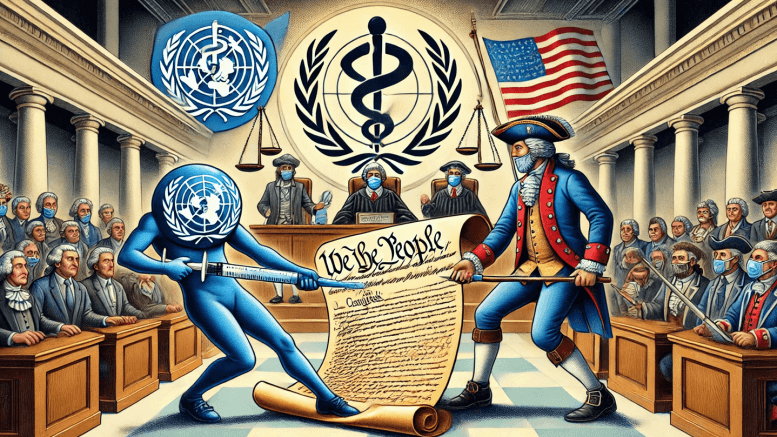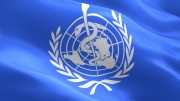In recent discussions, the concept of tyranny has emerged in various contexts, notably within the framework of global health governance. A focal point of this discourse is the World Health Organization (WHO) and its newly adopted International Health Regulations (IHR). This 62-page document, set to be voted on in the coming year, outlines legally binding measures for pandemic preparedness and response. The remarks of the WHO’s Inspector General at the World Government Summit underscore the legal authority and global impact of this document, raising concerns about sovereignty and global governance.
Pastor Mark Henry and Jan Markell of Olive Tree Ministries sit down with Dr. Mark Hitchcock to discuss how the Bible addresses the days we are living in. The following is taken from the “Understanding the Times” prophecy event held at Revive Church on June 6, 2024.
Afer viewing and hearing this discussion, The adoption of the WHO’s International Health Regulations (IHR) and the potential for increased global health governance present several threats and points of relevancy to the U.S. Constitution and Bill of Rights.
Here’s a detailed examination:
1. Sovereignty and National Governance
- Threat: The legally binding nature of the IHR could potentially supersede national laws and policies, leading to a loss of sovereignty. Decisions made by the WHO could directly impact domestic policies without the consent of U.S. citizens or their elected representatives.
- Relevancy: The U.S. Constitution grants the federal government the power to make treaties and international agreements. However, these must be ratified by the Senate, ensuring a measure of democratic oversight. The implementation of the IHR could challenge this process if it bypasses congressional approval or is enforced through executive actions.
2. Individual Rights and Liberties
- Threat: The IHR’s provisions for pandemic preparedness and response could lead to mandatory health measures, such as vaccinations, quarantine, and travel restrictions, which may infringe upon individual rights and freedoms.
- Relevancy: The Bill of Rights, particularly the First, Fourth, and Fifth Amendments, protects individual liberties such as freedom of speech, protection against unreasonable searches and seizures, and the right to due process. Mandatory health measures enforced under the IHR could conflict with these constitutional protections.
3. Due Process and Legal Recourse
- Threat: The centralization of decision-making authority within the WHO could limit the legal recourse available to U.S. citizens. Decisions affecting health policy may be made by international bodies without adequate representation or accountability.
- Relevancy: The Fifth and Fourteenth Amendments ensure due process rights, meaning that individuals cannot be deprived of life, liberty, or property without fair legal procedures. If the IHR undermines these protections, it could lead to legal challenges and constitutional conflicts.
4. Federalism and State Rights
- Threat: Health regulations enforced at the international level may conflict with the rights and responsibilities of U.S. states to manage public health within their jurisdictions. This could create tension between state and federal authorities.
- Relevancy: The Tenth Amendment reserves powers not delegated to the federal government to the states or the people. The imposition of international health regulations could infringe upon states’ rights to govern health policies locally.
Summary
The WHO’s International Health Regulations pose significant threats to U.S. sovereignty, individual rights, due process, and the principles of federalism. The potential for mandatory health measures and centralized decision-making could conflict with constitutional protections, necessitating vigilant oversight and legal safeguards to ensure that the rights enshrined in the Constitution and Bill of Rights are not compromised. As global health governance evolves, it is crucial to balance international cooperation with the preservation of fundamental freedoms and national sovereignty.





